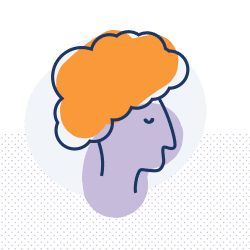Liberal democracy is under siege in the United States and around the globe. According to Freedom House, just 20 percent of the world’s population now lives in a “free” country, the smallest proportion since 1995. This marks the culmination of a persistent trend towards autocracy, with 18… Read more
Liberal democracy is under siege in the United States and around the globe. According to Freedom House, just 20 percent of the world’s population now lives in a “free” country, the smallest proportion since 1995. This marks the culmination of a persistent trend towards autocracy, with 18 consecutive years of decline in global freedom and a rise in authoritarian, ethnonationalist and xenophobic movements.
Four large laboratories of diverse democracies are at the heart of this alarming trend: Brazil, India, South Africa, and the U.S. While other democracies have also struggled against authoritarian waves in this same near two-decade span, these countries are of particular significance because they are among the largest economies in the world, represent 25% of the world’s population, and their respective national election timelines between 2022 and 2026 present far-reaching consequences for global democracy writ large.
What is fueling this slide? According to Keseb’s research, the main drivers are 1) economic change and persistent or deepening inequality, 2) rapid demographic changes, 3) dysfunctional and unregulated information ecosystems, 4) cooperation between opportunistic populist leaders and political elites, and 5) cross-border learning and solidarity by authoritarian movements and leaders. The first three conditions leave people susceptible to authoritarian narratives, and trigger what Yordanos calls the “authoritarian reflex.” But the last two add fuel to the decline and enable the direct targeting of democratic institutions. In sum, these challenges have both increased the need for and complicated the task of building inclusive democracies.
Indeed, autocrats are increasingly acting as a global force, united not by ideology or worldview, but against the common enemy of liberal democracy. Populist politicians are continually learning from successes and leveraging the “authoritarian playbook” in favor of their agendas. While authoritarians have a much easier time breaking than sustaining things, there are certain elements of their playbook that pro-democracy actors need to attend to, including: a willingness to use new tools, proactively creating strategic narratives, constantly evolving strategies and experimenting with new tactics, and perhaps most importantly, bad actors tend to be highly networked and engaged in transnational exchange of effective anti-democratic strategies. Meanwhile, the bifurcation of U.S. domestic and international pro-democracy efforts has hindered effective sharing of knowledge and tactics.
Efforts to protect and strengthen democracy suffer from four strategic gaps:
- Lack of a powerful multiracial, multiethnic, and multinational pro-democracy movement that can inspire people and counter rising nationalist authoritarianism.
- The chasm between countries as well as grassroots and “grasstops” organizations reinforces inequities across class, gender, and geography, hindering efforts to achieve transformational systemic change and build democracies that work for all.
- The inconsistent democracy funding landscape lacks consistent investment in leaders, which further compromises the sustainability of organizations and movements. For example, election-anchored philanthropic capital flow creates a “boom and bust” effect; and philanthropy support tends to be siloed – focused either domestically or globally on standalone social issues (such as gender rights). Increased funding and engagement from philanthropists is so urgently needed to prevent backsliding and promote pro-democracy innovations. In the U.S. in particular, a sense of exceptionalism and underestimation of authoritarian tactics has contributed to consistent underinvestment in innovations to defend and strengthen democracy. On the frontlines of the pro-democracy movement, along with values-based politicians and public servants, are visionary democracy entrepreneurs who are leading strategic civil society efforts. Despite these leaders and their efforts consistently demonstrating impact, Keseb’s extensive field research and interviews shows that they are ill-equipped to face the increasingly complex and volatile challenges due to underinvestment and a lack of support networks that facilitate learning and solidarity building within their countries and especially across borders (in many ways resembling the nascent social entrepreneurship field of 40 years ago). This results in high rates of burnout and exit. The pro-democracy field needs strategic, innovative, and collaborative civil society efforts -- not just a proliferation of activities -- that optimize their success in defending, strengthening and reimagining democracy, both in the short and long-term.
To combat the rise of anti-democratic forces in civil society and the general decline of democracy globally, it is no longer enough to simply expand traditional pro-democracy civil society efforts that may have worked in the 1990s. The 21st century is a time of massive societal change and technological advancement. Over the next 5-10 years in particular, innovation will be vital to the success of pro-democracy CSO’s in enabling their countries to realize the full promise and potential of truly inclusive and diverse democracies. Keseb is creating a paradigm shift within the pro-democracy ecosystem and providing democracy entrepreneurs and their organizations with a range of support, including financial and human capital, leadership development, national and transnational platforms to exchange knowledge and tactics, and peer learning and support networks.
Read less



